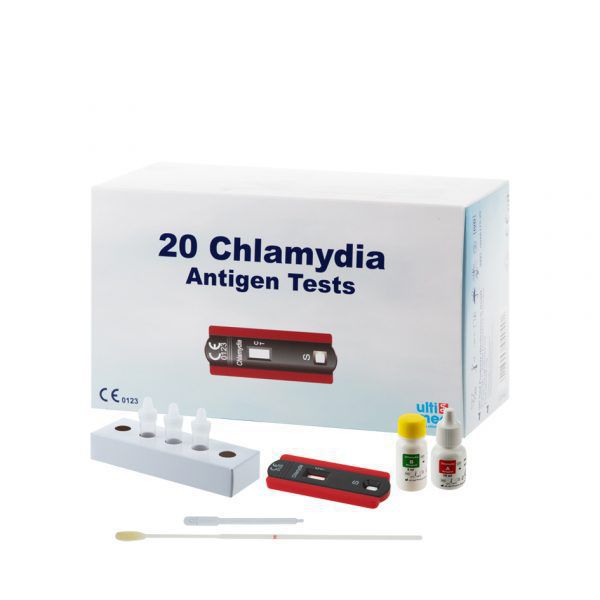Source: Johns Hopkins University Jan 01, 2019 6 years, 11 months, 3 weeks, 5 days, 14 hours, 45 minutes ago
A new test for chlamydia can provide results within 30 minutes, potentially speeding up the start of treatment, researchers say.
The rapid test for the sexually transmitted disease means patients can receive treatment immediately, instead of having to wait for a follow-up appointment. This could help reduce the spread of the disease, according to researchers at Johns Hopkins University in Baltimore.
Called a "point-of-care" test, the screening gives accurate results 93 percent of the time for a positive result and 99 percent of the time for a negative result, the investigators found. The study was funded by the U.S. National Institute of Biomedical Imaging and Bioengineering, or NIBIB.
"Point-of-care tests for
STDs are making significant progress towards being highly sensitive, specific and easy to read within a short wait time," Tiffani Bailey Lash said in an institute news release. She is director of NIBIB programs in point-of-care technologies.
Study leader Charlotte Gaydos said the goal of point-of-care technology is to deliver quick results and give patients more options.
"A patient should be able to choose if he/she comes into a clinic, goes to a pharmacy, or takes a test at home for STD diagnosis; the bottom line is to encourage people to get tested," said Gaydos, a professor of infectious diseases.
It is common for STDs to present without visible symptoms, so patients think they are healthy while, in fact, they are spreading STDs. Currently, patients who are tested for STDs typically receive their results anywhere from 2-14 days later, which contributes to the onward transmission and rapid spread of STDs. Studies have shown that even patients who have been tested have a low probability of returning to receive results, counseling, and proper treatment. Many patients don't come back to the
clinic for a follow-up appointment due to work or other obligations. Many who have been tested have low rates of return to receive results, counseling and treatment.
Women with untreated chlamydia can develop pelvic inflammatory disease. In men, untreated chlamydia can cause urethral infection and complications such as swollen and tender testicles.
The Johns Hopkins team is collaborating on a clinical trial that could lead to the approval of a chlamydia and gonorrhea point-of-care test in the United States.
The need is urgent, the researchers said. Government health officials reported a 10-15 percent increase in STDs between 2017 and 2018.
Reference : Lea E. Widdice et al. Performance of the Atlas Genetics Rapid Test for Chlamydia trachomatis and Womenʼs Attitudes Toward Point-Of-Care Testing, Sexually Transmitted Diseases (2018). DOI: 10.1097/OLQ.0000000000000865
